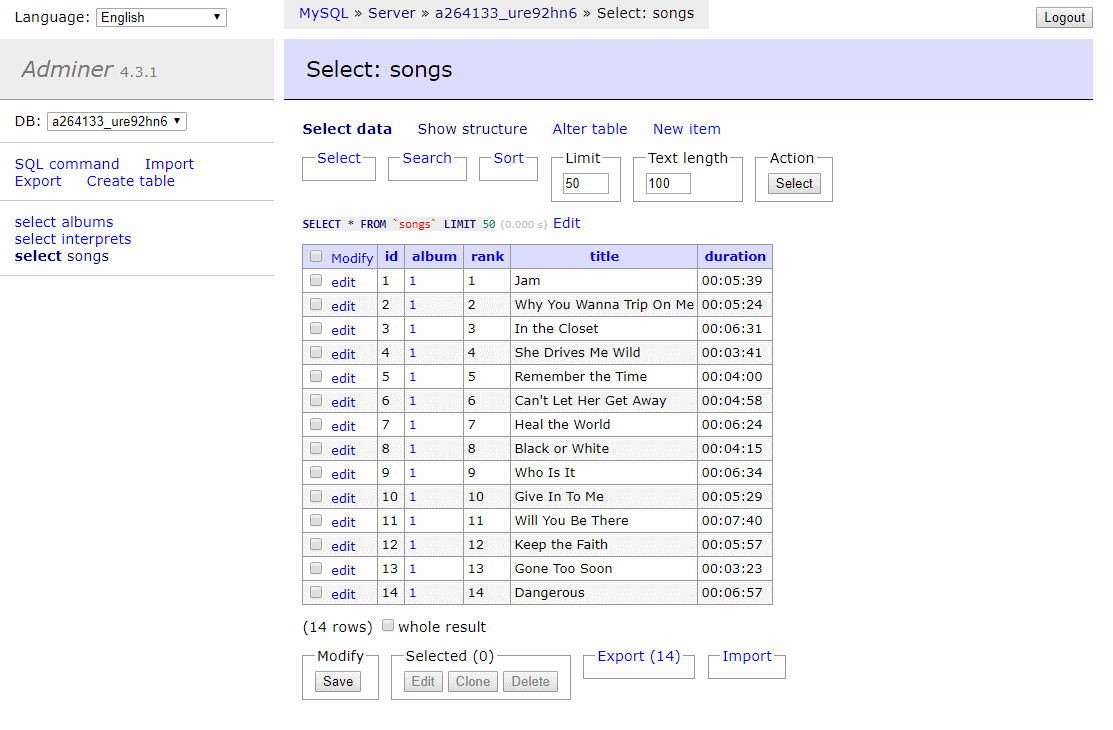Every PHP developer may have used at least once the widely known PHPMyAdmin, that useful interface that has saved our ***** more than once due to its simplicity. However, you may not be able to install PHPMyAdmin on every website you need to work with as you may not have the rights for it, only to modify or create new files. Someone that doesn't know that Adminer exists, would be in a trouble, fortunately now that you have read this, you know that Adminer exists.
Adminer (formerly phpMinAdmin) is a full-featured database management tool written in a single file of PHP. Conversely to phpMyAdmin, it consist of a single file ready to deploy to the target server. Adminer is available for MySQL, PostgreSQL, SQLite, MS SQL, Oracle, Firebird, SimpleDB, Elasticsearch and MongoDB. Between the most useful features stand out:
- Connect to a database server with username and password
- Select an existing database or create a new one
- List fields, indexes, foreign keys and triggers of table
- Change name, engine, collation, auto_increment and comment of table
- Alter name, type, collation, comment and default values of columns
- Add and drop tables and columns
- Create, alter, drop and search by indexes including fulltext
- Create, alter, drop and link lists by foreign keys
- Create, alter, drop and select from views
- Create, alter, drop and call stored procedures and functions
- Create, alter and drop triggers
- List data in tables with search, aggregate, sort and limit results
- Insert new records, update and delete the existing ones
- Supports all data types, blobs through file transfer
- Execute any SQL command from a text field or a file
- Export table structure, data, views, routines, databases to SQL or CSV
- Print database schema connected by foreign keys
- Show processes and kill them
- Display users and rights and change them
- Display variables with links to documentation
- Manage events and table partitions (MySQL 5.1)
- Schemas, sequences, user types (PostgreSQL)
- Extensive customization options
How to use
Just access the adminer.php file from the browser and that's it, the file just needs to be served in your server! You can provide your credentials (in case you have), select the database that you want to manipulate and do what you need to do.
The script is free for commercial and non-commercial use (Apache License or GPL 2) and supports PHP 5 with enabled sessions. For more information about this interesting project, please visit their official website here or checkout the source code in the official repository at Github here.









